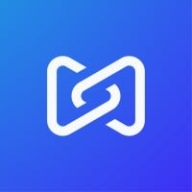

GitHub and Klocwork compete in the software development tool category, addressing different needs. Based on collaboration and flexibility, GitHub tends to have an advantage with its free personal use offering, while Klocwork's strength lies in its specialized static code analysis.
Features: GitHub is notable for its integration capabilities, community support, and features that benefit remote work and collaboration, such as branching and code review tools. Klocwork is strong in static code analysis, providing customizable checkers for code safety and compliance. GitHub is scalable and user-friendly for open-source projects, whereas Klocwork excels in error detection and detailed reporting.
Room for Improvement: GitHub could improve by enhancing integration with DevOps tools, refining management functions, and addressing issues with large file handling and project management features. Klocwork faces challenges with false positives, limited language support, and could benefit from more dashboard flexibility and simpler rule definitions.
Ease of Deployment and Customer Service: GitHub's cloud-based deployment makes it accessible and flexible, supported by strong community assistance, although technical support reviews are mixed. Klocwork typically requires more involved setup due to its private and on-premises nature, offering personalized support but with some constraints compared to GitHub's community-driven model.
Pricing and ROI: GitHub offers flexible, cost-effective pricing with free versions for startups and independent developers, although license management can be cumbersome. Klocwork involves a significant upfront cost with various licensing packages, often justified by its specialized capabilities. GitHub's ease of collaboration boosts ROI, while Klocwork's investment aligns with its advanced technical features.
The main ROI factors include efficiency and how we meet compliance standards for various automotive requirements.
The technical support from GitHub is generally good, and they communicate effectively.
Some forums help you get answers faster since you just type in your concern and see resolutions from other engineers.
I have not used GitHub's technical support extensively because there are many resources and a robust knowledge base available due to the large user community.
The customer support team is very responsive, proactive, and engages in conversations to ensure our needs are met.
The issue is not about the knowledge of the support but about the prioritization of the tickets they handle.
During the initial phase, there was a need for follow-ups and clarifications.
We have never had a problem with scalability, so I would rate it at least eight to nine.
GitHub is more scalable than on-prem solutions, allowing for cloud-based scaling which is beneficial for processing large workloads efficiently.
Klocwork supports our scalability needs without issues, even as project volumes increase.
The program-to-program enablement is scalable.
If a skilled developer uses it, it is ten out of ten for stability.
It provides a reliable environment for code management.
GitHub is mostly stable, but there can be occasional hiccups.
Installation is easy, and the solution is stable.
When working with the CI/CD pipeline and somebody is writing the workflow file, it would be best to include the AI feature so if they write incorrect code, it will notify me about it in the same dashboard, eliminating the need to use third-party tools to review the file.
I am providing this feedback for Copilot because it seems more widespread and more companies allow it rather than Amp, and it would be beneficial if they catch up with Amp on this capability.
Security could make GitHub better. OWASP Top Ten security advisors could be integrated on GitHub, and it could provide checks and advice.
There are too many warnings, and it requires expertise to determine the correct category for them.
Klocwork sometimes provides too many additional warnings which require expertise to manage.
We would like Klocwork to connect to Git and notify developers of issues tied to specific commits.
Normally, GitHub is not expensive, but it would be welcome if it reduces costs for developing countries.
The pricing of GitHub is reasonable, with the cost being around seven dollars per user per month for private repositories.
The pricing of GitHub depends on the choice of solutions, such as building one's own GitHub Runners to save money or using GitHub's Runners with extra costs.
It is less expensive than Coverity.
The solution is not very cheap, however, it is less expensive than Coverity.
Klocwork was competitively priced, making it a cost-effective solution for us.
The pull request facility for code review.
GitHub Actions allow for creating multiple jobs that run in different stages such as build, test, and deploy, which enable better visibility and control over the deployment pipeline.
For branching, it works well, especially in an agile environment.
The most valuable feature of Klocwork is the static analysis tools, which help identify potential security threats and errors.
Its integration with the CI/CD pipeline has helped streamline the software development process.
It takes just half a day to set up.
| Product | Market Share (%) |
|---|---|
| GitHub | 1.1% |
| Klocwork | 1.4% |
| Other | 97.5% |

| Company Size | Count |
|---|---|
| Small Business | 42 |
| Midsize Enterprise | 13 |
| Large Enterprise | 49 |
| Company Size | Count |
|---|---|
| Small Business | 12 |
| Midsize Enterprise | 2 |
| Large Enterprise | 12 |
GitHub is a web-based Git repository hosting service. It offers all of the distributed revision control and source code management (SCM) functionality of Git as well as adding its own features. Unlike Git, which is strictly a command-line tool, GitHub provides a Web-based graphical interface and desktop as well as mobile integration. It also provides access control and several collaboration features such as bug tracking, feature requests, task management, and wikis for every project.
Klocwork detects security, safety, and reliability issues in real-time by using this static code analysis toolkit that works alongside developers, finding issues as early as possible, and integrates with teams, supporting continuous integration and actionable reporting.
We monitor all Application Security Tools reviews to prevent fraudulent reviews and keep review quality high. We do not post reviews by company employees or direct competitors. We validate each review for authenticity via cross-reference with LinkedIn, and personal follow-up with the reviewer when necessary.